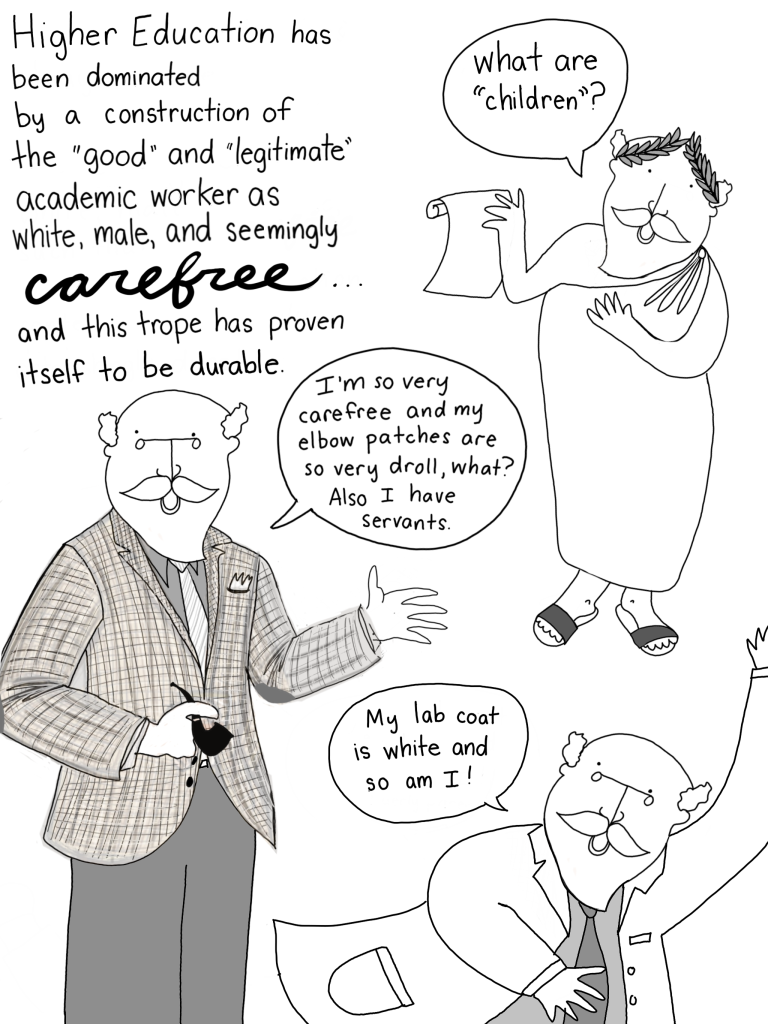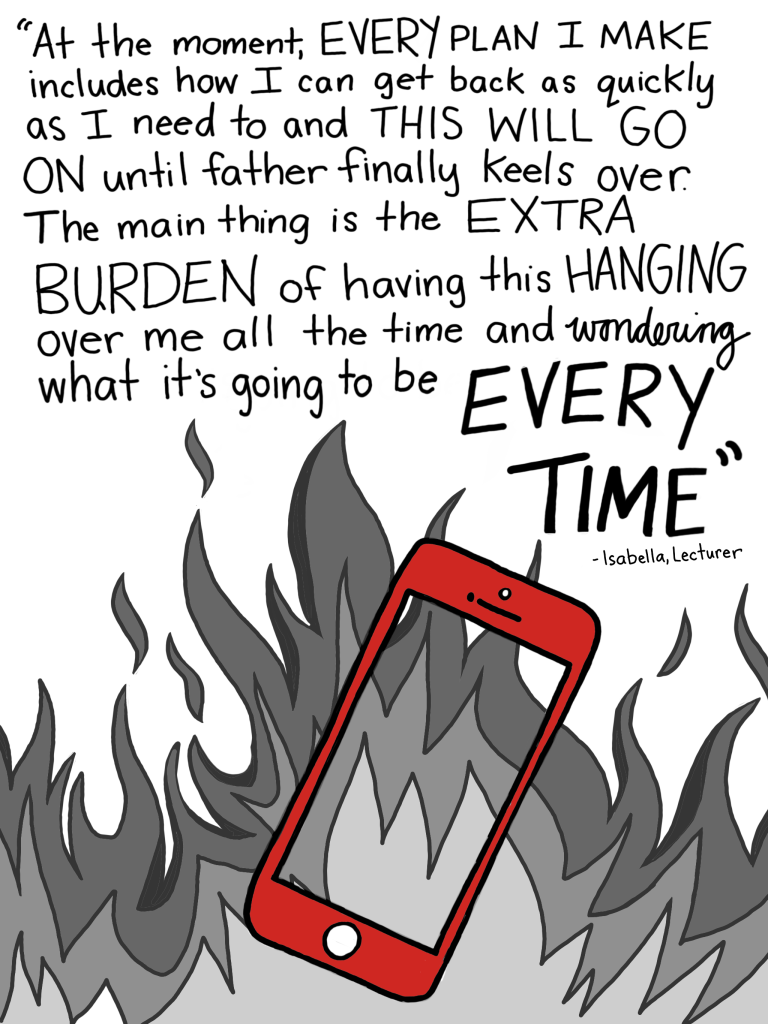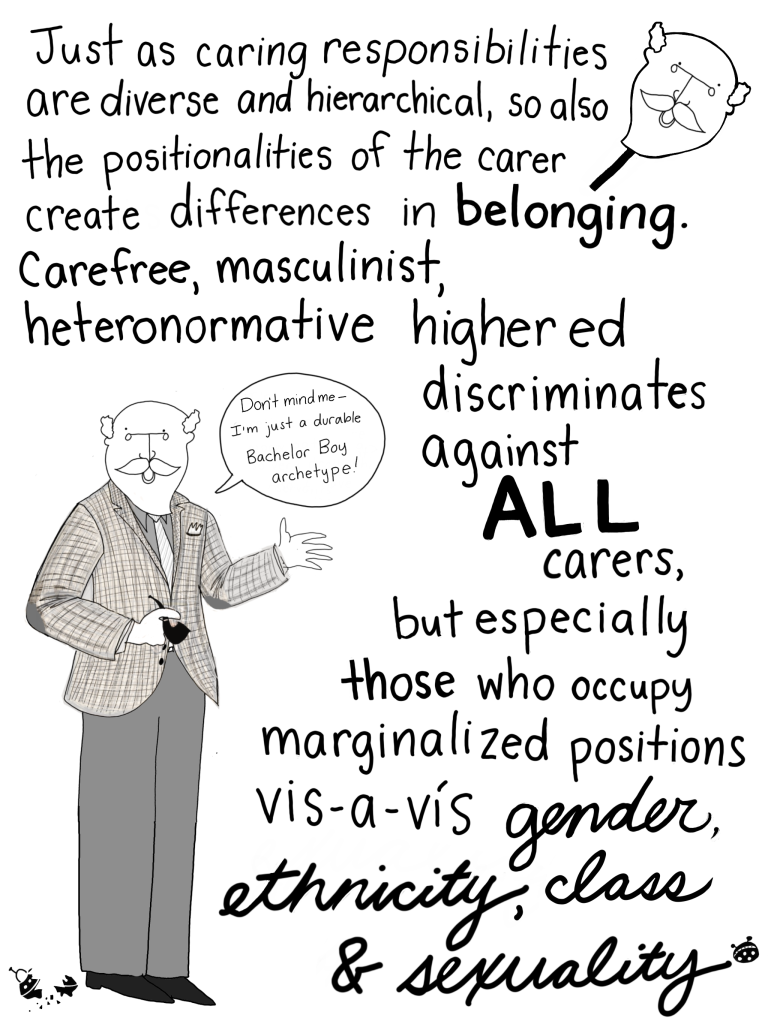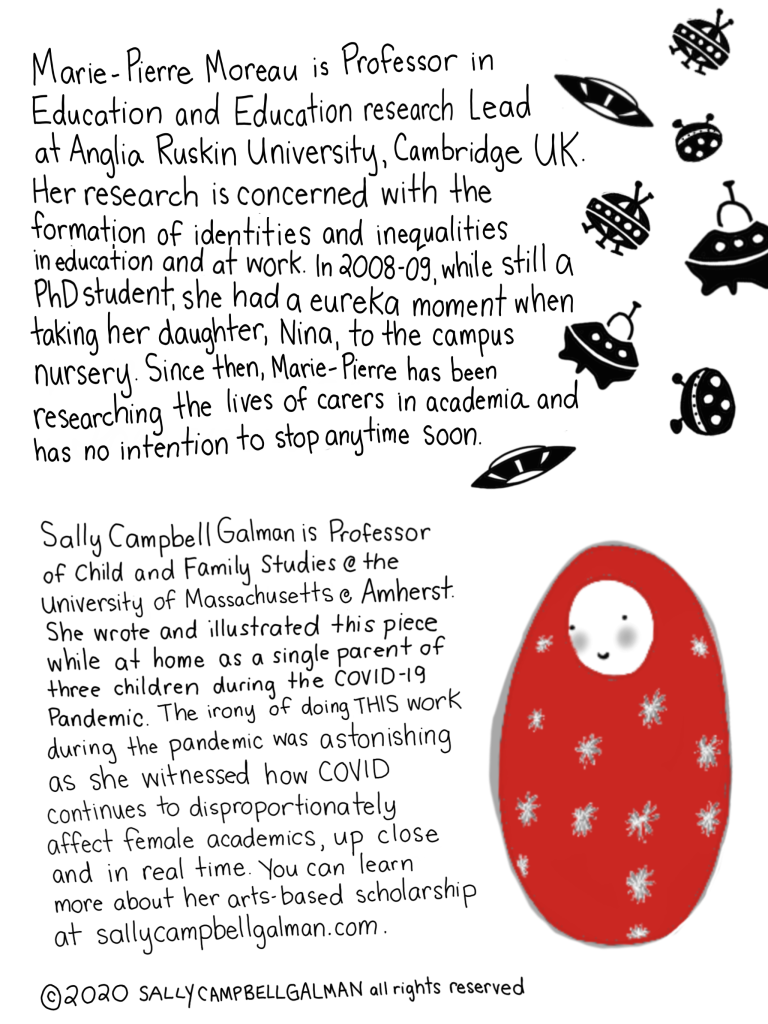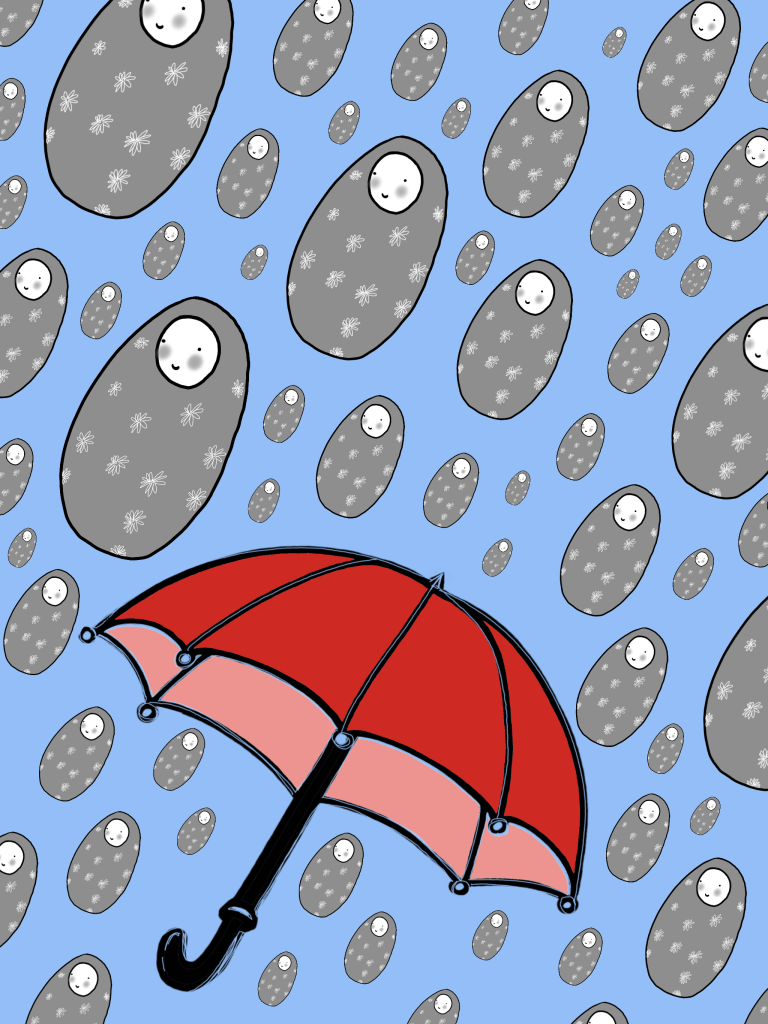An original research- and art-based collaboration between Marie-Pierre Moreau, Professor of Education at Anglia Ruskin University, Cambridge, UK, and Sally Campbell Galman, an independent cartoonist and a Professor at the University of Massachusetts at Amherst, US. This project is supported by Advance HE, as part of the Good Practice Awards programme.
In 2020, I started collaborating with the very talented visual artist and academic Prof. Sally Campbell Galman. Sally and I translated my research on carers in a series of beautiful drawings. We plan to exhibit the work in Cambridge (UK) and Amherst or Boston (US) in the near future, Covid permitting. In the meantime, I am delighted to share our art-research work online.
The story behind the drawings
Carers are a group of particular significance to society, as they contribute precious time and energy to other people’s needs and, simply put, enable society to operate. Yet they are largely rendered invisible and misrecognised. This is particularly the case in academia where the figure of the ‘bachelor boy’ has long prevailed. Through the use of comics and other art forms (see, e.g., Moreau and Bernard, 2018), we want to challenge the status quo and turn academia in a place of belonging for students and staff with caring responsibilities.
Using the arts as a mode of dissemination does more than enhance accessibility and engage diverse publics with research topics and stories; the arts in general, and comics specifically, enable readers to simultaneously consider the parts and the whole. The contiguous images and words that characterise comic art allow readers to be challenged by individual carers’ stories while also considering the larger sociocultural context. In using this medium, we are hoping to stimulate interests and reach out to a broad range of policy- makers, practitioners and individuals which may not, in other circumstances, have engaged with this issue. In particular, we hope to raise awareness of carers and of the diversity and intersectionalities of their experiences, and to encourage the development of practices and policies which foster carers’ sense of belonging.
The illustrated comic vignettes and companion booklet will be launched at an end of project event hosted by Anglia Ruskin University and at a similar event, hosted by the University of Massachusetts in 2020-21, Covid-19 permitting. They are also available online in open access for all to use, with appropriate recognition of the authors.
Researching carers in academia has never been more timely. First, those with caring responsibilities now represent a significant presence in academia (NUS, 2013; UCU, 2017). The age distribution of the HE workforce means that staff are likely to have caring responsibilities, whether they are the parents of young children or have more complex caring responsibilities. In the UK HE sector, the statistical feminisation of the workforce (HESA, 2016) is likely to increase the proportion of those with caring responsibilities, as care work remains largely constructed as ‘women’s work’ (Atkinson, 2017).
Second, extant research shows that those with caring responsibilities often struggle with a broad range of issues. Carers have to navigate the conflicting demands of academia and the family (Wainwright and Marandet, 2006). Students and those in the most precarious forms of employment, are at high risk of financial strain and often have high levels of debt, linked to the costs of care provision in the UK and, in the case of students, tuition fees (Hinton- Smith, 2008; NUS, 2009). Carers often experience feelings of social isolation, of ‘not belonging’, as well as a range of emotional and health problems. These affective and emotional components of carers’ experiences are often overseen by policies (Brooks, 2014; Moreau and Kerner, 2012, 2013; NUS, 2009).
Third, the issues experienced by carers in HE are likely to persist or even worsen in societal contexts where austerity policies have led to significant cuts to social care budgets (Carers UK, 2013). Carers are increasingly expected to remain in paid work, with a number of reports identifying the retention or re-entry of carers in the workplace as a priority. Growing expectations of geographical mobility and long working hours have also exacerbated the demands of academic and care work (Henderson and Moreau, 2019).
Last but not least, Covid-19, which came uninvited over the course of this project, has suddenly thrown light on the care arrangements which had been rendered invisible by carefree academic and societal norms. This newly acquired visibility is a critical moment that needs grasping if we are to embrace the idea of the ‘care-full’ university.
You can download the companion booklet to the drawings here:
The illustrated vignettes
Disclaimer: We are happy for the work to be used by others for pedagogical purposes and even encourage you to do so. We are also happy to talk to you if you would like to run an exhibit of the material or organise an event related to this particular project. However, we require that you reference the work, acknowledging the authors (Campbell Galman and Moreau) and the funder (Advance HE). These images can not be used for commercial purposes. The same rule applies to all the material available on this website, including articles, films, drawings, and other resources. In addition, should you use these resources, I would be grateful if you could let me know. Thank you!
Copyright: Sally Campbell Galman / Marie-Pierre Moreau.


